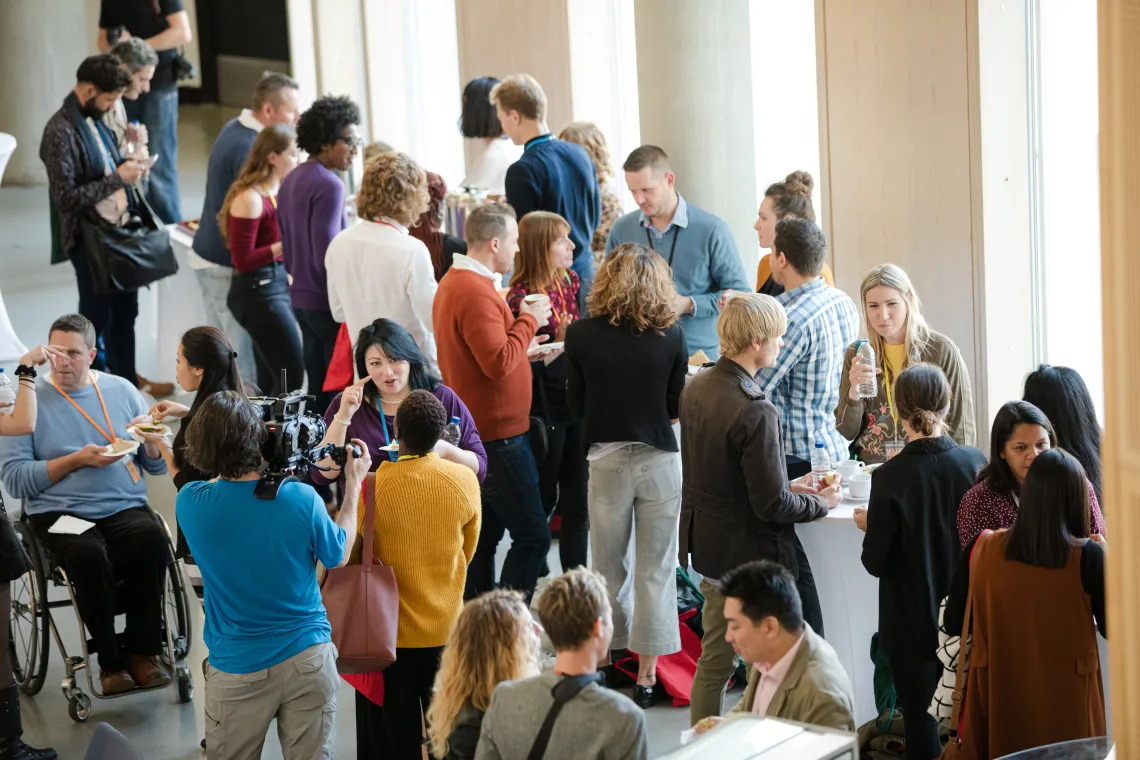Academic Conferences: A Guide

KOTO
Academic conferences are an exciting way to learn about your field and network within it, but if you’ve never attended a conference, the protocol can seem a little nebulous. That’s why I sat down with Karen Zimmerman, Assistant Director of the School of Art and a professor in the Graphic Design and Illustration Division. Professor Zimmerman has been on the planning committees of academic conferences, panels, and events, so she has helpful recommendations about how graduate students can get the most out of their conference experiences.
The first thing you need to know is that conference prep starts months before the event. Once you’ve decided that you want to go to a conference, you have to figure out which presentations and panels to attend. You can do this by looking at the conference schedule and scanning the list of presentation topics, and by looking up presenters’ bios and the panels’ discussion contexts. You can even start networking before you arrive by sending emails to people whose work you admire and asking them if they might have time to talk at some point during the event. Even if just a quick exchange after someone’s presentation, getting in touch early will help you stand out from the crowd.
Getting an early start can also help you find the funds you need to attend. One option to consider early on is volunteering:
“At almost every conference that I've ever been to, there is a call for volunteers, and you can attend the conference for free,” says Zimmerman.
Most departments will also have some money set aside to help graduate students attend conferences—especially if they’re presenting a paper—so locate the person in your department who might be able to help you. Find out if there are steps you can take, like submitting a proposal for a paper to the conference, that make it easier for your department contact to allocate funds to your trip.
Finally, early prep will give you a chance to make a reservation at the conference hotel. Staying in the hotel near the venue that the conference organizers have booked for visiting scholars is a great networking opportunity, so booking a spot in advance is a good idea.
Once you’ve arrived at the conference, it’s time to network and learn. Following your event schedule should take you to the presentations and panels you want to see, but don’t be afraid to make changes or switch rooms halfway through if you find something that looked exciting on the page isn’t for you. And be open to conference events—which are traditions or excursions where scholars can socialize outside of the presenters’ hall. These events can give you the structured social time you need to make connections, so don’t miss them.
And of course, try your best to improve your knowledge base and skillset. You can learn a lot about your interest area at a conference—from people inside and outside of your discipline. And you can also sign up to take workshops where you’ll get a more hands-on experience with the material. Presenting itself can help you understand your subject better and teach you a lot about what it’s like to explain your subject to your peers.
Another important thing to do at a conference is to have fun! When else are you going to be surrounded by so many people in your interest area? The word networking might give you the impression that you have to construct a solemn persona, but honestly this is one place where you can nerd-out about your interests to your heart's content, so don’t miss your chance.
Once the conference has ended, it might be tempting to think that the professional opportunity is over, but the connections you’ve made could result in collaborations or future conversations. So follow up with people whom you’ve connected with. Send them thank you emails, or just stay in touch. You might be surprised at the professional and personal connections you facilitate by doing so.

